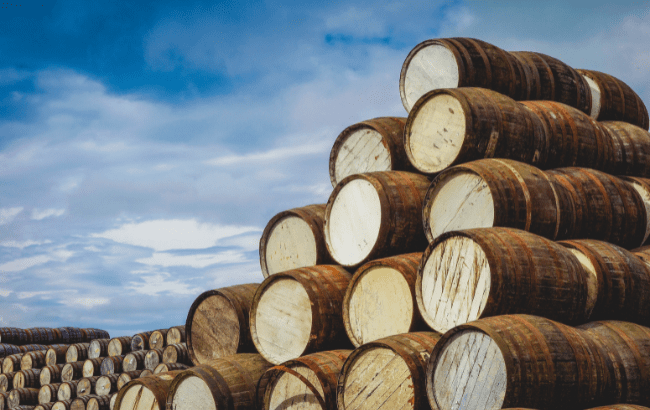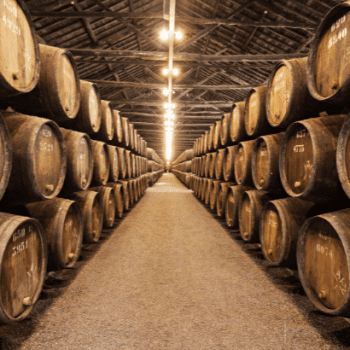Experts warn of cask investment pitfalls
Fraudulent cask investment companies are putting the reputation of the whisky category at risk, industry experts warn.

According to analysis by the International Wines and Spirits Record (IWSR), the value of the ‘average’ whisky bottle in the UK grew by 4% per year between 2016 and 2021, with premium whisky growing at double that rate.
The increase in the category’s value has subsequently led to a spike in whisky cask investment companies promising potential investors ‘very healthy returns’. However, the cask investment market is currently unregulated, and as such there are no pricing lists or established mechanisms for selling, and no recourse for compensation through the Financial Services Compensation Scheme if something goes wrong with the investment.
Now, members of the whisky trade have expressed concerns that fraudulent or dishonest investment firms are putting the reputation of the Scotch industry at risk.
Citing an article published in The Telegraph in February 2023, which detailed how one cask investor found he had no way of proving he was the legal owner of nine whisky barrels he had invested £28,000 (US$35,500) in between 2020 and 2022, Sam Simmons, head of whisky at Atom Brands and Balvenie global ambassador emeritus, told The Spirits Business: “Even before stories like that have come out, many of us in the whisky industry have been a bit worried that there are people getting fleeced.
“The illegitimate investment firms are selling people things that don’t exist. There’s a lot of HMRC legislation and tax-related paperwork that has to go into it when you’re buying and trading alcohol. Not everyone knows that.
“So people who are coming into this thinking they’ll own casks in some warehouse soon come to learn that they don’t own those casks, and when they come to acquire their cask or realise that asset, or try and sell it on, their name is nowhere near the ownership materials.”

Cask investment guidance provided by the Scotch Whisky Association (SWA) states: “If the cask is located in a warehouse that belongs to someone other than the seller, you should ensure that the transfer of ownership is properly recorded and acknowledged by the warehouse keeper.
“Traditionally this was done by way of a delivery order, a document setting out the details of the cask to be transferred, signed by purchaser and seller and then delivered to the warehouse keeper. Nowadays, an invoice or owner’s certificate may suffice.
“Before completing the purchase you should check with the warehouse keeper what documents they require and ensure that the seller can deliver them to you.”
However, whisky broker Mark Littler notes in an article on his website that the final sentence of this guidance is “usually left out by dealers trying to sell casks without a delivery order”.
“If a cask broker or dealer is not providing you with a delivery order, or worse telling you that you cannot get one, then at best they do not understand their own industry, and at worst they are purposefully misleading you,” Littler said.
Dissipating confidence
Simmons noted that the confidence consumers and investors have in the Scotch whisky industry has been established over hundreds of years.
“This equity wasn’t built overnight. This respect and love for Scotch whisky was built over decades, if not centuries,” he said. “And when people start losing confidence and thinking that what they bought was shit, or they start getting fleeced out of their investment, their confidence in our whole category will dissipate.”
The risks associated with cask investment is something Simmons thinks needs to be more widely communicated to those looking to put their money into the category, however he believes one of the other biggest pitfalls for cask investors is a lack of exit strategy, and no understanding of what to do with the whisky once it has matured.
Daniel Humphrey, founder of the Summerton Whisky Club, said the biggest question investors need to ask is who will purchase that cask next.

“Some may think they can bottle it to get their return, but under whose brand? And if you’ve overpaid, will it be competitively priced to actually sell? This is an issue that the industry will have to address, otherwise the negative stories that will arise will put off future cask investors, even for those investment firms that are truly being fair with their work.”
Simmons added: “The problem is that that those casks are the livelihood of people who know how to put the whisky in a bottle. Ultimately, petrol needs to go into an automobile; buying bulk oil and having a barrel in your garden isn’t going to do anything for you unless you know how to refine it and put it into an automobile, then you can sell it.
“So we’re getting a massive influx of firms coming into this industry who aren’t bottlers, who are buying up casks at already inflated costs because it starts with someone trying to make a buck, then selling it to someone who doesn’t know how to get it out after having promised them those types of percentage returns that are only even remotely achievable if you can sell it to someone who knows how to bottle it and turn it into money.”
Simmons also noted that the additional issue facing investors is the discrepancy that is increasing between a customer’s willingness to pay high prices for a bottle of Scotch.
“You go to Tesco and you’ll find most Scotch whiskies are under £40 (US$51),” Simmons explained. “Most of them in volume, Tesco would tell you, are under £30 (US$38), but casks are being traded at prices that to put in glass, you’d have to be at £100 to £120 pounds a bottle, right? So that is untenable. And that is, unfortunately, the tell-tale sign of a bubble.”
A bursting bubble
According to Knight Frank’s latest report, the value of rare whisky in the UK fell by 4% in the year to June 2023 as all other luxury assets increased.
Humphrey explained: “Whisky bottles as an investment went into overdrive during the Covid-19 lockdowns, with seemingly every limited edition release from established brands, and the first few from new distilleries, selling out apparently instantly, only to be found on auction sites the next day at prices way above retail.
“However, since then we have seen auction prices drop, sometimes to below RRP, and many releases still sitting on shop shelves weeks after release. Add to this that many releases have seen big price increases versus previous years, whilst people’s purchasing power has been constrained, and we appear to no longer be in a time where investing in bottles is an easy earner.
“Those brands that went chasing the ever-increasing auction prices are now in a difficult spot, as they have priced themselves out of reach of many drinkers, and there are less investors to pick up the slack.”
Related news
Golf drives Glen Moray push in UK travel retail
